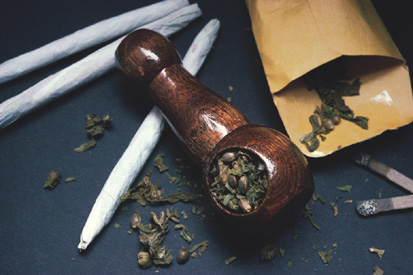Current Temperature
Town pushing forward with cannabis licensing
Posted on June 27, 2018 by Taber Times TIMES FILE PHOTO
TIMES FILE PHOTOBy Trevor Busch
Taber Times
tbusch@tabertimes.com
The Town of Taber is finalizing its regulations with regard to business licensing for cannabis-related uses in anticipation of recreational legalization in 2018.
At their May 28 regular meeting, town council voted unanimously to pass first reading of Business License Bylaw 14-2018. While a public hearing is not required for a business license bylaw, administration “strongly suggested” that second and third readings are held after the public hearing of Cannabis Land Use Amendment Bylaw 13-2018 on June 25, as some of the concerns potentially raised at the public hearing by council or the public, “may be better addressed through the business license bylaw rather than the land use bylaw.”
At the May 14 meeting, council had also directed administration to remove all references to cannabis lounges from the bylaw. In January, council had directed administration to increase local regulations on the business license process by including a separate business license for cannabis-related businesses, requiring police checks, and “any other necessary regulations administration believed were warranted.” Additionally, direction was given to moderately increase business license fees associated with cannabis businesses.
Later in March, council directed administration to limit the hours of operation for cannabis retail sales from 10 a.m. to 10 p.m., with preferred licensing fees of $500 per year for cannabis retail sales, $1,000 per year for cannabis lounges, and $2,500 per year for cannabis production and distribution. Council discussion on May 28 focused on the wording surrounding business hours of operation, with some councillors seeking enhanced clarity in the language.
Other cannabis-specific changes have included cannabis-related use definitions (Part 1), specific regulations around cannabis-related uses (Part 6), separate application for cannabis-related uses (Schedule B), and a revised fee schedule (Schedule C). The changes are in alignment with best practices established by the Federation of Canadian Municipalities and the Alberta Urban Municipalities Association.
Some of those regulations for retail sales include proof of federal/provincial approvals and licenses, a security plan and proof of a security alarm contract, police information checks for owners or employees, prohibition of minors under the age of 18, a ban on all advertising and signage other than the company name and logo, no consumption permitted on the premises, no online sales or home delivery, and “transparent storefronts.”
In an April letter to planning director Andrew Malcolm which was reviewed by council on May 14, Taber Police Service Chief Graham Abela called for significant increases to business license applications for cannabis-related uses as a method for the police to recoup anticipated costs of enforcement.
“As the chief of police, I am certain that there will be costs associated to the Taber police in the enforcement of cannabis-related activities in the community. There are few ways in which the municipality can recoup the costs associated with cannabis activities, except through the licensing requirements for the businesses that benefit from cannabis sales.”
“In jurisdictions where cannabis is currently legally sold, the increased regulations required to administer cannabis have placed greater strains on the police and the provincial and federal governments have not said how the revenue collected from taxation will trickle down to the municipality.”
Abela noted enhanced costs associated with training ($7,000 per officer), drug testing ($40 per test), enforcement, and prosecution.
“There are few, if any, alternatives in the MGA to recoup these costs… we would urge council to adopt a business licensing application fee and a yearly licensing fee for cannabis-related business endeavours, commensurate to cover some of the costs associated with the enforcement of this industry.”
According to administration, “the legalization of cannabis will likely have significant financial implication for the municipality. However, it is unlikely that the financial implications can be reasonably recouped through business license fees.”
One response to “Town pushing forward with cannabis licensing”
Leave a Reply
You must be logged in to post a comment.




I would like to know specifically what increase in cost Graham Abela is referring to. Does this mean there is an increase in cost for business licenses when it comes to liquor stores? convenience stores that sell tobacco products?
It’s not fair to increase the cost to open a cannabis related storefront when the cost of opening a liquor store or tobacco storefront is not increased with it. This town has been thinking backwards long enough and it is time to put an end to this bias against marijuana.